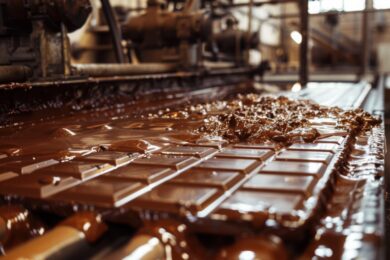
Kenyan Grain Farmers Venture into Forestry Investment
Commercial private forestry investment is becoming a lucrative venture in the North Rift region of Western Kenya due to increased demand for firewood by food processing and textile industries, Abuja-based Daily Nation reported this week.
Acreage under tree seedlings in the region, Kenya’s food basket, has increased from 3,000 to 4,000 hectares, with farmers planting more than 14 million tree seedlings this season.
According to Solomon Mibey, Kenya Forestry Services (KFS) North Rift head of conservancy, more Kenyan grain farmers are investing in commercial forestry plantations to grow trees for charcoal, sawn wood trade and fodder for their animals – a business which they consider to be more profitable than wheat or corn production, said Mibey.
Three Sectors Support Demand for Firewood
Copy link to sectionAs estimated by Kenya Forestry Research Institute (KEFRI) and KFS, there are three categories of industrial firewood consuming sectors which entice grain farmers in the North Rift region to venture into commercial forestry investment.
They include one main pulp mill (Rai Plywood) and 12 textile and food processing industries, — which together consumed about 320,000 tonnes of firewood in 2012, valued at Sh560 million (£4.3 million) – as well as 28 tea processing factories affiliated to Kenya Tea Development Authority (KTDA), whose demand for firewood is estimated at 450,000 tonnes, valued at Sh675 million (£5.2 million).
Overall, according to a KEFRI report, Western Kenya’s industrial firewood demand is estimated at Sh1.2 billion (£9.3 million).
Demand for power transmission poles made of wood is also attracting farmers to invest in commercial forestry. The price of firewood in Western Kenya is about Sh1,400 (£10.89) per cubic metre, slightly more than the Sh1,300 (£10.11) paid for wood for electricity transmission poles.
In 2009, demand for electricity transmission poles by Kenya Power was about 350,000 pieces, estimated at over Sh3 billion (£23.3 million).
More industry news







